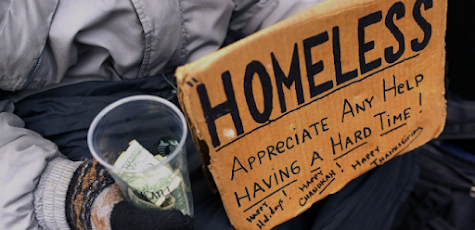Mental Health Issues resulting in Substance Abuse
Mental Health Issues resulting in Substance Abuse
Homelessness often leads to substance abuse because people living on the streets use drugs or alcohol to cope with their tough situations. The stress and trauma of being homeless make it hard to avoid these things or even quit using these substances. Without a home, money, stable support system, it's challenging to get help for addictions. With this constant cycle of abusing the use of these substances, it results in mental illness. This makes it even harder for homeless people to get back on their feet, resulting in a cycle of homelessness and substance abuse resulting to mental illness, causing the ability to stop and find a will to do so even harder.
Different types of mental illnesses:
- anxiety and/or depression
- PTSD
- Bipolar Disorder
- Borderline Personality Disorder (BPD)
- Schizophrenia
- Etc.
statistics:
- 257,000 homeless people suffer from severe mental illness and/ or a chronic substance abuse.
- Homeless people= higher risk for opioid overdose
- 1/3 homeless have problems with alcohol and/or drugs
- 2/3 lifetime struggle of alcohol and/ or drug abuse
- 38%= alcohol abuse
- 26%= drug abuse
Being homeless brings the feeling of being alone, feeling like a burden, and that there is no way of getting help/ no one wanting to help because of the situation they are in. Causing them to believe they are seen as less than a human being .
Resources:
Projects for Assistance in Transition from Homelessness (PATH)- funds people with serious mental illness that are homeless.
Treatment for Individuals Experiencing Homelessness (TIEH)- provides access to mental and substance use disorders treatment for homeless with serious mental illness
Rose City Resource Center
References:
https://americanaddictioncenters.org/rehab-guide/homeless
https://www.usa.edu/blog/mental-health-statistics/
https://www.samhsa.gov/homelessness-programs-resources



Comments
Post a Comment